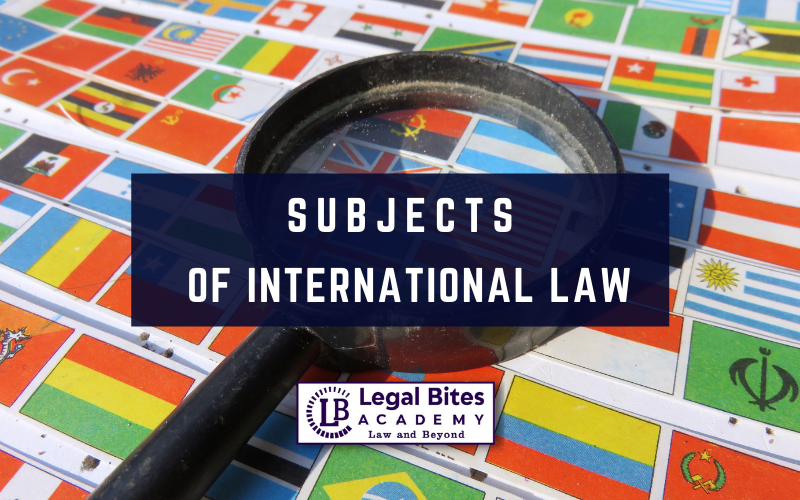Subjects of International Law
Subjects of international law means those entities which possess international personality. In other words, subjects of international law are those entities that have rights duties and obligations under international law and which have the capacity to possess such rights, duties and obligations by bringing international claims. Subjects of International Law In past, the matter was not much debatable… Read More »

Subjects of international law means those entities which possess international personality. In other words, subjects of international law are those entities that have rights duties and obligations under international law and which have the capacity to possess such rights, duties and obligations by bringing international claims. Subjects of International Law In past, the matter was not much debatable because according to the contemporary circumstances and scope of international law only...
Subjects of international law means those entities which possess international personality. In other words, subjects of international law are those entities that have rights duties and obligations under international law and which have the capacity to possess such rights, duties and obligations by bringing international claims.
Subjects of International Law
In past, the matter was not much debatable because according to the contemporary circumstances and scope of international law only the states were qualified for international personality, but in the near past, along with the increasing scope of international law many other entities have been given international personality.
Now, the question arises; whether they may be treated as subjects of international law or not? And also if they were given the international personality then what shall be the criteria for ascertaining the qualification of their being the subjects of international law. So, there are different theories as regards the above debate.
The most prominent theories may be discussed as under:
1. Realist Theory
According to the followers of this theory, the only subject of international law is the Nation States. They rely on that the Nation States are the only entities for whose conduct the international law came into existence. The Nation States, irrespective of the individuals composing them, are distinct and separate entities capable to have rights, duties and obligations and can possess the capacity to maintain their rights under international law. So, the Nation-States are the ultimate subjects of International law.
2. Fictional Theory
According to the supporters of this theory, the only subjects of international law are the individuals. For the reason, that both the legal orders are for the conduct of human beings and for their good well.
And the Nation States are nothing except the aggregate of the individuals. Though the rules of international law relate expressly to the Nation States actually the States are the fiction for the individuals composing them. Due to this reason individuals are the ultimate subjects of International law.
3. Functional Theory
Both the Realist and Fictional theories adopted the extreme course of opinions. But Functional theory tends to meet both the extremist theories at the road of the new approach. According to this theory, neither states nor individuals are the only subjects. They both are the subjects of modern international law. Because states being the primary and active subject of international law have recognized rights, duties and obligations under international law and are capable to maintain the same by bringing international claims.
On the other hand in modern international law individuals have also been granted certain rights, duties and obligations under international law and maintain the same by bringing direct international claims. Even, not only states and individuals are the subjects of international law but several other entities have been granted international personality and became the subjects of international law. This is because of the increasing scope of international law.
Conclusion
If all the above theories are to be analyzed philosophically then it may be concluded that Functional Theory seems to be more accurate because due to the modern scope of international law and world trends.
It is obvious that there are many actors in international law, which have been granted rights, duties and obligations, and also to secure their rights and have been provided with the capacity to bring international claims. So along with states and individuals neither, do certain other entities which have been given international personality shall be treated as subjects of international law but also all those new entities which with due course of time are going to be given international personality.

Mayank Shekhar
Mayank is an alumnus of the prestigious Faculty of Law, Delhi University. Under his leadership, Legal Bites has been researching and developing resources through blogging, educational resources, competitions, and seminars.

